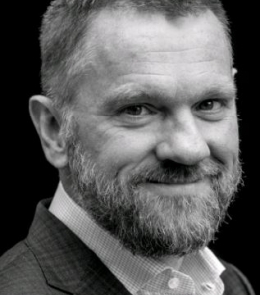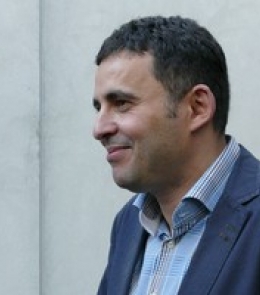People often say that politicians never ‘tell it like it is’. This is an important part of what draws people so strongly to populists like Trump. They take pride in the fact that they do not let themselves be muzzled by ‘political correctness’, as opposed to the aloof, carefully weighted discourse employed by professional politicians.
But is it true that politicians always keep their cards as close to their chests as possible? According to several researchers in the field, it is.
British communication expert Peter Bull has been studying the communication habits of British politicians for decades, a job that obliges him to watch political interviews for hours on end.
Through patient tallying and categorisation, he has come to distinguish between at least thirty-five (35!) techniques that politicians use to evade questions posed by journalists, a practice that he has dubbed ‘equivocation’. The closest definition of this term would probably be ‘a refusal to commit’.
For those of you who are interested: there are twelve main categories, which can be subdivided as follows:
Thirty-five ways to avoid answering interview questions
- Ignoring the question
- Acknowledging the question without answering it
- Questioning the question
- Requesting more explanation
- Bouncing the question back: ‘You tell me’
- Attacking the question
- The question does not address the key topic under discussion
- The question is hypothetical or speculative
- The question is based on a faulty premise
- The question is not accurate in terms of facts
- The question contains an erroneous quote
- The question contains a quote that has been taken out of context
- The question is offensive
- The question is based on a wrong choice
- Attacking the interviewer
- Refusing to answer
- Because you cannot answer
- Because you do not want to answer
- ‘I can’t speak for someone else’
- Delaying the answer (‘You will have to wait and see’)
- Claiming ignorance
- Making a political point
- Attacking an external group (the opposition or rival groups)
- Referring to policy
- Defending policy
- Reassuring
- Appealing to nationalism
- Presenting a political analysis
- Self-justification
- Defending your own party or opinion
- Providing an incomplete answer
- Starting an answer but not finishing it (interrupting yourself)
- Providing a negative answer: the politician says what is not going to happen instead of what is going to happen
- Giving a partial answer
- Answering only half of the question
- Giving only a fraction of an answer
- Repeating the answer to the previous question
- Saying or implying that the question has already been answered
- ‘Excusing’ yourself: (‘Excuse me, but…’)
- Taking the question literally
It cannot be denied that this is an impressive list indeed. For the sake of completeness, Bull also identified the most popular evasion technique among these 35. The one that came out on top was, without a doubt: ‘Attacking the question’.

British communication expert Peter Bull has come to distinguish at least thirty-five (35!) techniques that politicians use to evade questions. The most popular one: ‘Attacking the question’.
But why do politicians not answer questions?
Another interesting question: why are politicians so disinclined to answer interview questions?
Bull claims that this may have one of two reasons: either politicians are rather evasive creatures by nature, or it has to do with the types of questions being asked. Perhaps politicians are ordinary people too, and display equivocal behaviour when faced with a difficult question.
They do not respond any differently than we would, says Bull, when given a sweater on Christmas that we actually think is hideous. You would never say: ‘That’s horrible: I’ll take it back to the shop tomorrow’. Instead, you would say: ‘Thanks for the sweater, I love it.’
In scientific terms: people behave equivocally when they find themselves in a situation of ‘avoidance-avoidance’: when there is absolutely no pleasant way of answering but an answer is required.
People do not want to lose face, says Bull, and in this way, politicians are no different from us: when faced with a situation in which every answer will lead to a loss of face, they prefer not to answer at all.
Politicians, it appears, can lose face in at least thirteen different ways.
People do not want to lose face and politicians are no different from us
Thirteen ways in which politicians can lose face
- Their own face
- Creating or confirming an impression of incompetence
- Failing to present themselves in a positive light when an opportunity arises
- Losing credibility
- Contradicting earlier statements and policy
- Personal difficulties in the future
- Confirming or creating a negative impression of their own public persona
- Having difficulty in stating or defending their own standpoint or that of their party
- The face of the party
- Creating or confirming a negative impression of the party, its standpoints, policy, etc.
- Failing to present the party in a positive light when an opportunity arises
- Future difficulties for the party
- Contradictions between the party’s policy, statements and standpoints
- With regard to the party in power: creating or confirming an impression that the country is headed for ruin
- The face of important stakeholders
- Failure to support the electorate
- Failure to support a significant percentage of the electorate
- Failure to support a colleague
- Failure to support a sub-group of the party
- Failure to support other groups or bodies that enjoy a positive image
- Failure to support an allied country
- Supporting a person who is perceived as negative
(Note how atypical Trump’s candidacy was when seen from this perspective! He would likely achieve a score of 13 out of 13 on this list.)
Confronted with questions that could possibly lead to a loss of face, politicians prefer to choose the lesser evil: not answering the question at all.
Bull even suggests that we could organise a scoring system for politicians and interviewers based on his research, incorporating parameters such as:
- How skilful are politicians in evading difficult questions?
- How do politicians respond to ‘no necessary threat’ questions? These are questions that are not likely to lead to losing face. Someone who fails to answer one of these is making a mistake of their own doing (‘failing to present themselves in a positive light’).
- How successful are interviewers in coercing politicians to answer questions?
Can interviewers be held accountable for this?
Or is the media to blame? Actually, they are.
Confronted with questions that could possibly lead to a loss of face, politicians prefer to choose the lesser evil: not answering the question at all.
In one of his studies, Bull catalogued 557 questions posed by political interviewers. At least 40% of the questions asked could be categorised as ‘avoidance-avoidance’, i.e. those in which the interviewer consciously tries to pose the question in such a way that the politician is unable to answer without suffering loss of face.
This is a self-fulfilling prophecy: journalists assume that politicians will not answer, and therefore pose ‘avoidance-avoidance’ questions, many of them formulated in such a way that they can only be answered with a ‘yes’ or a ‘no’.
The politician responds with an evasive answer. And then the journalist will try even harder to corner the politician. Which brings us back to where we started.
It is striking, nevertheless, that politicians score much higher when responding to questions asked by the general public. These tend not to be ‘avoidance-avoidance’ questions, because it takes a great deal of practice to formulate these spontaneously. Where the percentage of ‘impossible’ questions posed by professionals is between 40 and 60 per cent according to the scores kept by Bull, only 20 per cent of all questions stemming from the general public could be defined as ‘impossible’.
The extent to which politicians answer these questions is proportional to the above figures: only 47 per cent of all questions posed within the context of a political interview are given a concrete answer. However, when these questions originate from the general public this is 73 per cent, according to Bull.
There is certainly some truth in the hypothesis that neither the general public, nor the politicians, nor the interviewers benefit from questions formulated this way. The ‘hard’ interview is, above all, machismo – a perfect stage on which the senior reporter or editor-in-chief can play the starring role.
What should we remember?
- That there is a type of question intended to result in loss of face for the interviewee and that it is perfectly all right to give an evasive answer to these questions – sometimes it is the only way to answer them.
- That this type of question may be macho, but it will not necessarily elicit the most information. It can deteriorate into an insider game. By this we mean an anchor showing off in front of his or her colleagues but only managing to distance him or herself from the average viewer or even alienate the audience if we are not careful.
- That it helps to call things by their name – even if it’s only because ‘avoidance-avoidance’ has such a distinctly Orwellian ring to it. Whichever way you look at it: our media training will, from now on, always include a section on how to deal with ‘avoidance-avoidance’ questions
Only 47 per cent of all questions posed within the context of a political interview are given a concrete answer.
Be sure to read this article, which recently appeared in The Guardian, in which a journalist allows herself to be interviewed by Peter Bull – and fails miserably at evading questions.
It would certainly be interesting to hear what political journalists and spokespeople have to say about this: what is your opinion?
Sources
- Bull, Peter: ‘The Microanalysis of Political Communication: Claptrap and Ambiguity’, Routledge Research International Series in Social Psychology, Kindle Edition, 240 pages





























































































